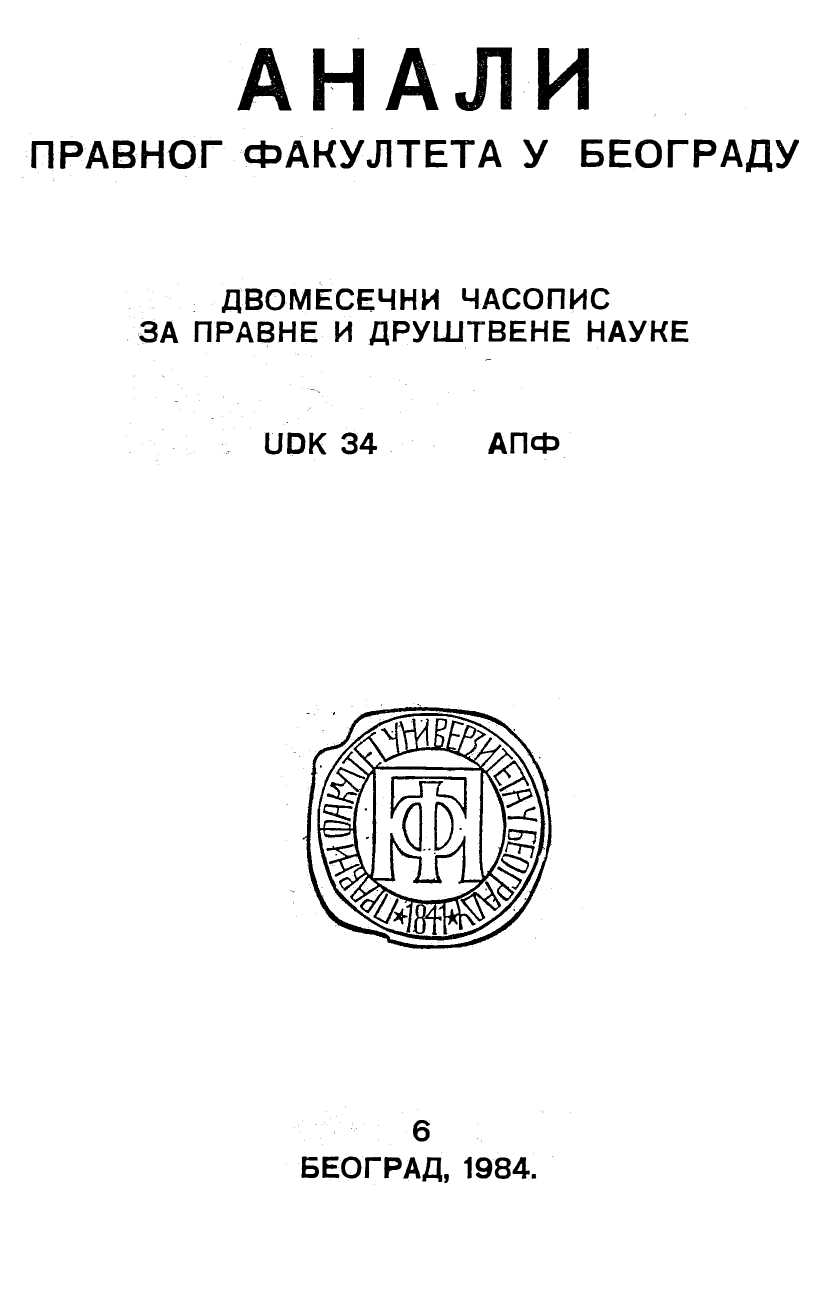ПРАВНА ПРИРОДА ЗАКУПЧЕВОГ ПРАВА И РАЗЛИКОВАЊЕ СТВАРНИХ ПРАВА И ПРАВА ПОТРАЖИВАЊА
THE LEGAL NATURE OF RENTER’S RIGHTS AND THE DISTINGUISHING OF REAL RIGHTS FROM THE RIGHT TO CLAIM COMPENSATION
Author(s): Jean DerruppéSubject(s): Law, Constitution, Jurisprudence, Commercial Law
Published by: Правни факултет Универзитета у Београду
Summary/Abstract: From the beginning of the twentieth century, there occurred marked changes in the field of renting (leasing) real property. The renter was given more and more rights, and wider rights, which became adverse to the rights of the owner. This is the reason why, today, it has become appropriate to ask the question: have renter’s rights inspite of the mentioned changes retained the legal nature of the law of obligations, as asserted in the traditional legal theory. In order to offer an answer to this question, the author firstly looks at the evolution of the substance of the renter’s rights, determining a variety of legal regimes; behind this variety, there exists a similarity of development. Namely, there are basically three legal regimes in regard to the lease of real property in French law. They are: a) the legal regime regarding agricultural land and buildings; b) the legal regime regarding the leasing (rental) of business premises; c) the legal regime regarding the renting of housing premises (apartments, houses). Regardless of certain differences between the mentioned legal regimes, there are significant common features among them, especially in regard to the duration of the renter’s rights, and his wider authority in regard to the real property rented/leased. In the second part of the article, the author discusses the question of the legal nature of the renter’s rights. He argues the very foundation of the traditional view, according to which the renter’s rights are in fact obligation rights. The comparison of the renter’s rights with the rest of the real rights reveals no essential difference between the two groups. This stands in the case of certain rights becoming effective, and also in the matter of their legal protection, finally, in the case of the possibility of confrontation of these rights with the rights of third parties. The distinguishing of subjective rights from real rights, and obligation rights should be based on the internal structure of subjective rights, for this structure offers the really reliable criteria for classification. Real rights are those rights offering their holder the power to utilise the yields of his property. Conversely, the right to claim is the power to demand a certain praestatio (-benefit) from a certain party. A significant feature of the renter’s rights is manifested in the possibility of the renter independently and freely utilising the yields of the rented property. And that is a real right.
Journal: Анали Правног факултета у Београду
- Issue Year: 32/1984
- Issue No: 6
- Page Range: 814-828
- Page Count: 15
- Language: Serbian

